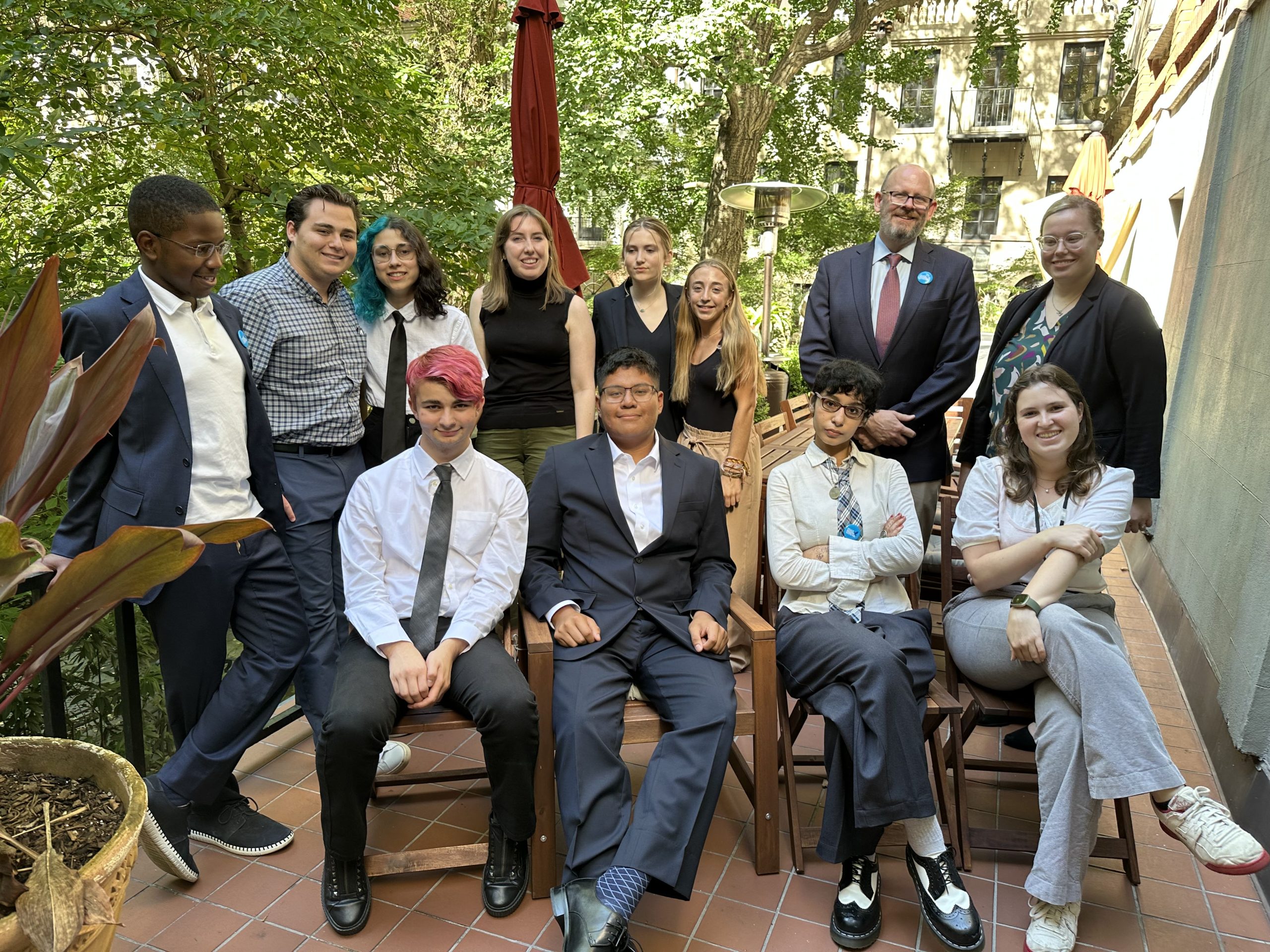Students from Delaware Valley Friends School started the school year off with an exciting visit to New York City, where they learned about the UN and Quaker work at the UN. The delegation of 8 high school students was among hundreds of young people invited to take part in this year's observance of the UN’s International Day of Peace. “It was truly inspiring to learn about the work that other kids our age are doing around the world,” said Lauren (grade 10) reflecting on a full morning of workshops and presentations at the UN Headquarters.
On most days in New York, QUNO works in close partnership with diplomats and officials to increase global commitment to the UN’s role in promoting lasting peace that puts people first. Student visits are great opportunities for us to connect with young people, on their way to becoming the leaders of tomorrow, so that they also develop a deeper understanding and appreciation of the important role of the UN. This was definitely true for the students from Delaware Valley Friends.
The students’ day got off to an early start with morning workshops at the UN that introduced the UN Sustainable Development Goals (SDGs). The kids were able to meet other participants and explore how different mediums – from photography, to poetry, and even video games – can be used to mobilize for change. They were excited to discover that other young people are engaged on some of the same topics that are priorities for them. Two members of the school’s feminist club shared that they enjoyed talking with other young people who are also working on the topic of period poverty – the need to ensure better accessibility to menstrual products. The students explained that raising awareness around this challenge has been a priority for their club, and they were excited to make connections with young people from other parts of the world who also see this as a priority.
During the afternoon, the students had a chance to unwind and debrief at Quaker House. They were eager to learn more about the history of Quaker work at the UN, and Quaker involvement on topics like youth inclusion and the SDGs. For QUNO, a visit from a school group is always a fun shift in our daily routine. The Quaker House living room feels markedly different when a group of teenagers sit down and share some pointed and frank questions: “why is it like this?” and “why don’t the diplomats try this other approach?” The students asked some excellent questions about the difference between the UN General Assembly, the UN Security Council, how each of these key UN institutions work, and about the challenge of big power competition.
QUNO is grateful to the students for making the trip up to New York City, and for bringing all their energy and curiosity. We wish all the students at Delaware Valley Friends the very best for the coming academic year!







